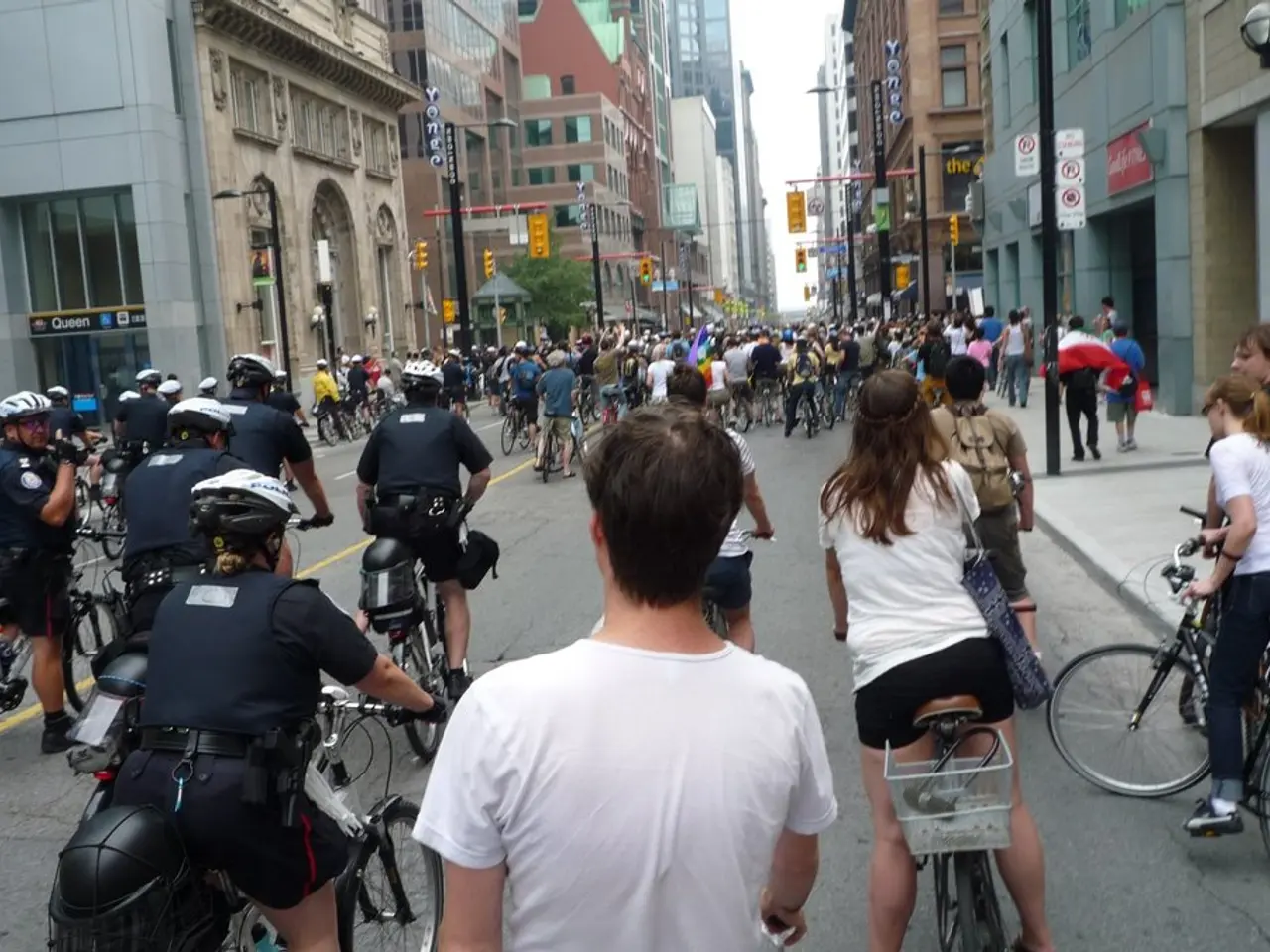"British Parliamentary report advocates for changes in the Cycle to Work scheme and social equity in active transportation, stating that it overlooks the socio-economic obstacles to cycling"
The All Party Parliamentary Group for Cycling & Walking (APPGCW) has published a groundbreaking report, shedding light on the social justice issues in active travel in the UK. The report, titled "Social Justice in Active Travel," was written by Dr Tom Cohen and Dr Ersilia Verlinghieri of the University of Westminster's Active Travel Academy, and was supported by British Cycling and Leigh Day.
The report argues that there is a "very significant lack of social justice within active travel" in the UK. It identifies that many groups are under-represented among those who walk, wheel, and cycle, including children, Disabled people, women, and people from minority ethnic backgrounds. Olly Glover, Liberal Democrat MP for Didcot and Wantage, and a member of the APPGCW, stated that more needs to be done to tackle the social and economic barriers to cycling in the UK.
One of the key recommendations in the report is the renaming of the Cycle to Work scheme as Cycle for Health. Glover states that the current scheme is not open to everyone, specifically not to people on lower incomes, the self-employed, and pensioners. The report emphasizes the importance of engaging with interest groups to be informed and to represent those groups in policy development and designing local schemes.
The APPGCW recommends effective and meaningful involvement of local cycling and walking advocacy groups, community organizations, and user representatives in policy development and local scheme planning. The report also makes nine recommendations to address these issues, including reducing financial barriers to cycling, tackling pavement parking, and ensuring UK-wide access to free cycle training.
Glover argues that walking, cycling, and wheeling can solve multiple problems, including economic activity, carbon emissions reduction, air pollution reduction, and improvement of cardiovascular and mental health. The report makes a moral obligation to respond to the exclusion of many people from active travel, which is something positive. It argues that it is not acceptable that so many people feel excluded from active travel, and that doing so can have practical benefits, representing a massive shift in the right direction if all groups did as much active travel as those who face the fewest barriers.
The report also highlights that the benefits of active travel are not experienced evenly, and many groups such as children, Disabled people, women, and people from minority ethnic backgrounds face greater barriers to active travel. The report concludes by stating that active travel should be for everyone, and it's the catalyst for the inquiry due to the very significant lack of social justice within active travel. This report serves as a call to action for policymakers, advocacy groups, and the public to work towards a more inclusive and equitable active travel landscape in the UK.
Read also:
- Understanding Hemorrhagic Gastroenteritis: Key Facts
- Stopping Osteoporosis Treatment: Timeline Considerations
- Tobacco industry's suggested changes on a legislative modification are disregarded by health journalists
- Expanded Community Health Involvement by CK Birla Hospitals, Jaipur, Maintained Through Consistent Outreach Programs Across Rajasthan








